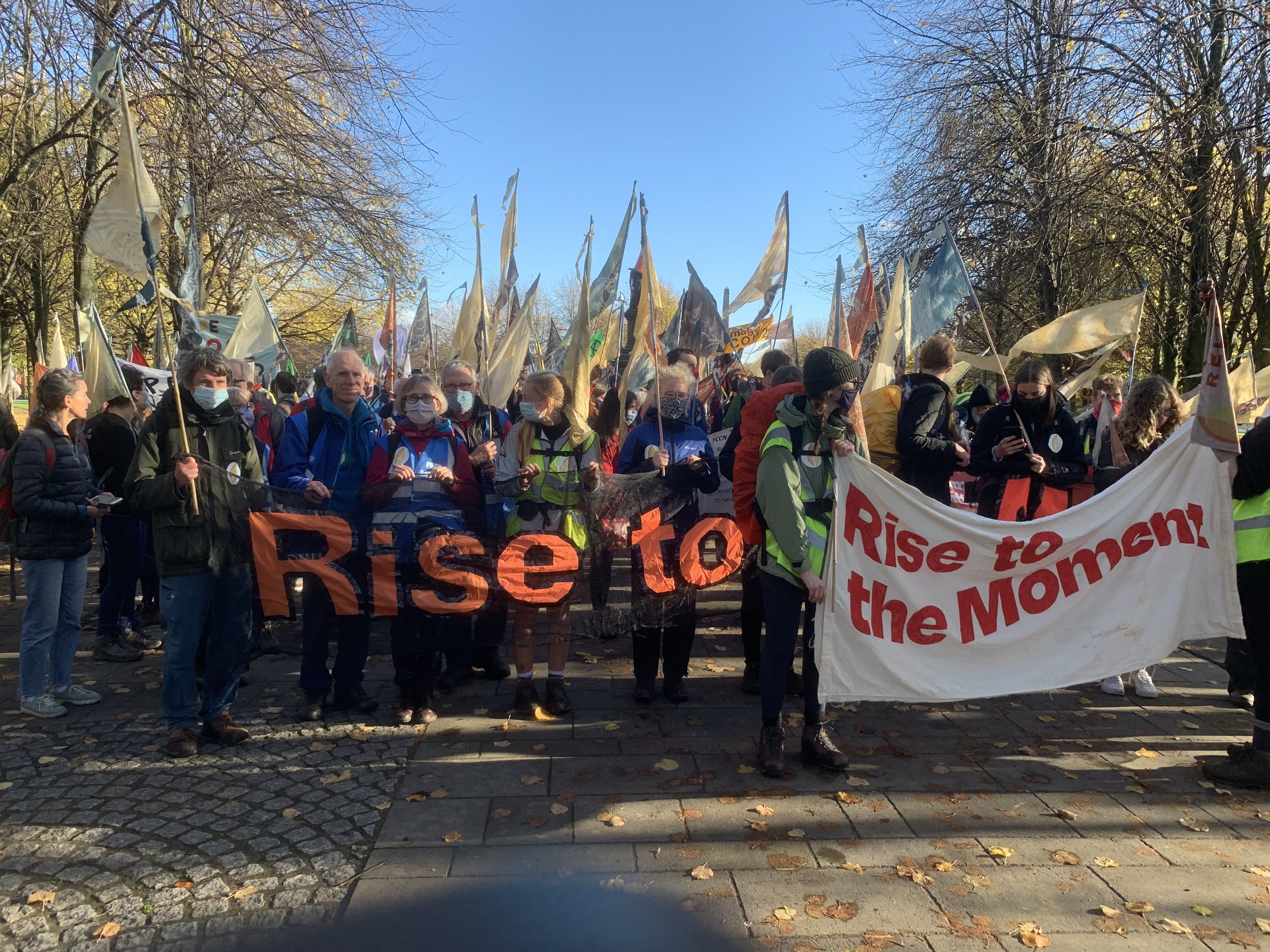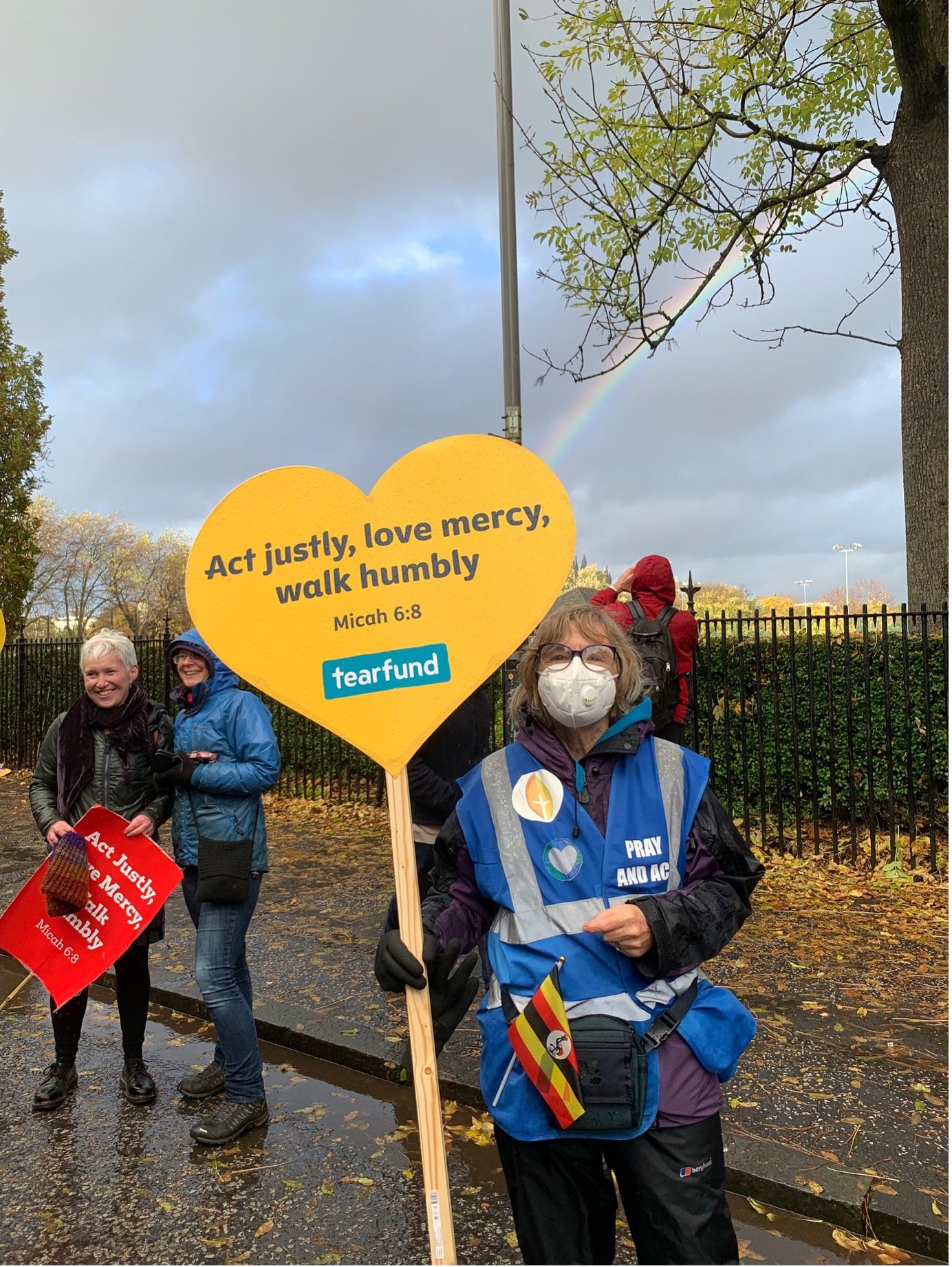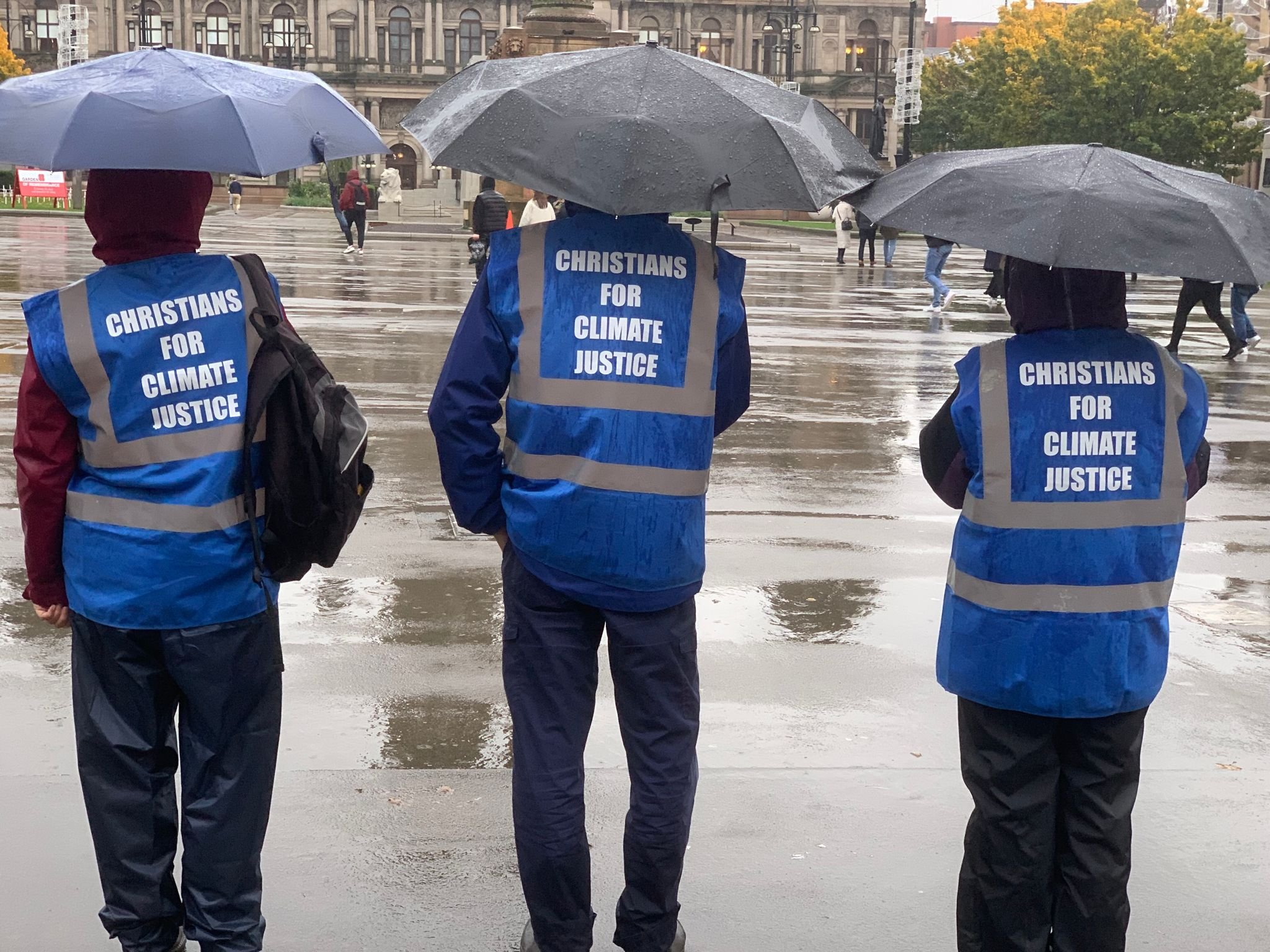What’s next after the Glasgow Agreement?
Fridays for future student protester in Glasgow for the COP26, Nov 2021
EA’s chair, Paul Williams writes following his time at the COP26 in Glasgow last week. Previously he and his wife Heather walked to Paris to attend the COP21 and also went to the Bonn COP23.
Shortly after the deal was reached at the United Nations Climate Change Convention in Glasgow John Kerry, US climate envoy, said:
Paris built the arena, Glasgow started the race and tonight the starting gun was fired.
It certainly is a race against time. Six years on from the Paris climate agreement to keep global warming under 2 degrees centigrade its aspiration to to limit the rise to 1.5 degrees has not been met.
As to how much has been achieved in Glasgow any assessment has to balance progress on:
Deforestation
methane reduction
phasing out subsidies that artificially lower the price of coal, oil, or natural gas together with
the agreement to bring forward the review of emissions targets to COP 27 in Egypt next year
Against
the anguished cries of the poorer nations and island states about the watering down of the text of the agreement from ‘phasing out’ to ‘phasing down’ coal and
the lack of strong commitment for funding for less developed nations to adapt to the changing climate and to pay for loss and damage caused in the meantime.
In Glasgow the role of young people, churches, other faith communities and NGOs in calling for climate justice was crucial. Their continued involvement will be vital in bringing pressure to bear on world leaders to come back next year with pledges of further cuts to emissions of carbon dioxide, one of the greenhouse gases that cause climate change.
The success or failure of COP 26 will ultimately depend on whether, and how quickly the commitments made lead to action on the ground. That assessment is for the future. Although the agreement failed to secure enough pledges to reduce carbon emissions sufficiently to keep global warming within 1.5 degrees C, it may have left the door open for that target to be met if those pledges are strengthened next year. So, in the run up to COP 27 what can be done to ensure that the voices of the poor, indigenous communities, and generations yet unborn are heard by those who will be taking those decisions?
Our commitment: raise empathy and also inspire action for those most affected
Empathy Action will continue to promote its climate justice workshop ‘The High Life’ to increase awareness of the inequality of the effects of climate change and empathy with those most affected by it.
Our hope is that this will lead to participants raising their voices for the poor and taking practical action.
There are numerous examples of the form this could take in the news bulletins and town twinning messages which feature in the workshop. In a survey of students taking part in one school that ran 'The High Life’:
96% agreed that THL had increased their awareness of the injustice suffered by those who had done least to contribute to climate change;
95% agreed that their awareness of the impact their life choices could have on others had increased;
87% wanted to take action against climate injustice; and 89% agreed that THL had given them ideas about how they could make a difference.
‘The High Life’ is free to download from our website.





